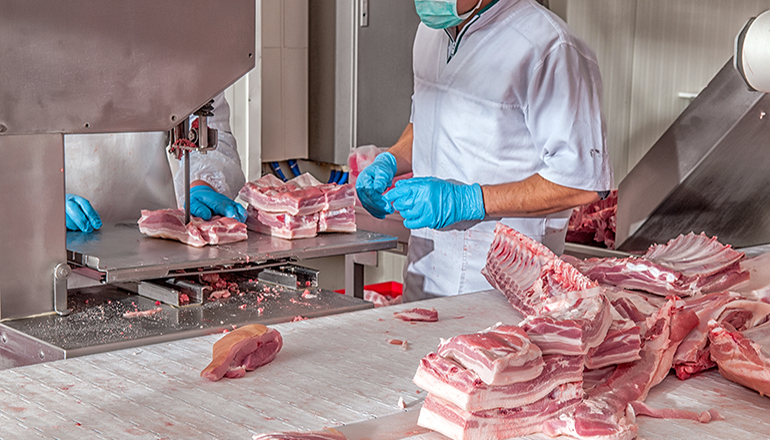An organization in rural Missouri is getting a funding boost to empower workers at meat-processing plants, especially immigrants and refugees, and help them advocate for themselves.
The Rural Community Workers Alliance, (RCWA) based in Milan, Missouri near the Smithfield plant, said it will use a new Rapid Response grant from the HEAL Food Alliance to organize workers, make sure they know their rights in the workplace, and advocate for policies that hold companies accountable.
Axel Fuentes, executive director of the RCWA said ironically, many food industry workers struggle to afford to feed their own families. “Even when you hear the companies, they say, ‘Well, we pay high rates.’ It’s not always the case, because in many cases, also they use a lot of contractors,” Fuentes explained. “Those contractors, they are not necessarily paying the same rate as the companies are saying.”
Fuentes added that meat-processing plant workers also face a high likelihood of injury on the job. He noted meat processing requires repetitive and strenuous movements, and there is no regulation on how many cuts employees can be expected to produce in a given period. He added Missouri does not require companies to offer workers breaks during the workday.
Fuentes argued immigrant and refugee workers are often more vulnerable to being exploited by their employers. “What we do is to teach them how to come together as a group, and how to address the situation either approaching management or sending letters or complaining to the government agencies and teaching them that they have rights,” Fuentes outlined.
Navina Khanna, executive director of the HEAL Food Alliance, said the COVID pandemic has revealed the long-standing fragility of the food system, farmworkers, workers at meat-processing plants, and BIPOC communities more likely to face diet-related chronic health conditions are often most affected. “We really believe that the solutions that are most impactful, and the folks who really know what the solutions are, are the people who are most affected by the problems that we’re facing,” Khanna stressed. “We intentionally aim to invest in and uplift the leadership of front-line communities in this work.”
Khanna emphasized flexible grants are important since it is not always possible to predict what the needs will be.


